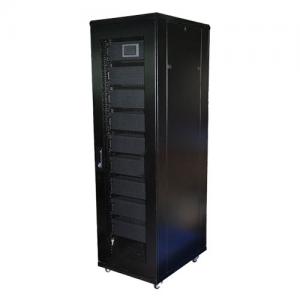Why Choose Lithium Batteries to Power Boats?
Rods, reels, soft and hard baits, swim baits, wonders, fishing tools and trackle storage and etc. are parts of tools in the list of fishing equipment. To tell the truth, sea fishing needs a long list of tools and equipment. Nowadays, with the development of technology, boat batteries have upgrated for generations, and according to many tests, lithium battery is the newest one which is very fit for boat. In short, that’s because those with a passion for casting their reel into the ocean want a reliable power source that ensures they’re going to be able to stay out on the waters longer, move faster, and save weight on their boat. Today, more and more fishing pros look to lithium batteries to offer them a competitive advantage, doing everything a lead acid battery can do, only faster.Lithium battery which is used in boat is not only a dependable power source, but it is also a green choice for environment because it is composed of recycle materials. Lithium batery is non-toxic and it will not emit any vapor or fumes.
Why Choosing Lithium Batteries for Boat?
Nowadays, there are many kinds of batteries, for example, lithium battery, gel battery, lead-acid battery and etc. As we all known that, longer run time is one of advantages of lithium battery. Generally speaking, a lithium battery can provide two times longer of run time than that of lead-acid battery and lithium batteries will not experience the power drop traditional deep-cycle batteries experience as the battery drains. And lithium battery have a longer cycle life, better efficiency and lighter weight and etc. BMS is also built in lithium battery. Let’s dig into each of these more.
There are two key tasks handled by the batteries on your boat: starting the engine, and running all electrical loads, from lights to radio and other accessories. You never want to lose the ability to do either one. The lithium ion boat battery is becoming more popular because they excel at high-performance battery tasks. That’s why a lot of manufacturers and boat owners have made the transition from flooded lead-acid batteries to LiFePO4 battery technology, which offers plenty of advantages for boating.
That includes:
1. EFFICIENT
Combing lighter weight and longer runtime of lithium batteries, you will finally get a much more efficient system. The depth of discharge for lithium battery is 100% which means lithium battery can provide full power and regardless of charge level. Boat need a fail amount of cranking thrust because it usually experience sudden speed fluctuation.
That means when you’re out on the water, you get more trolling motor speed. They last longer than lead acid and you don’t have to be concerned about getting stuck with a dead battery on the water, especially with little or no advance warning. Under normal use, a boater can get 10 years or more of service out of their lithium batteries, which offers significant savings. Lithium-ion batteries also weigh much less than lead acid batteries, and in fact are so light they can float — which is going to provide a big boost to your boat’s speed and fuel economy. The lithium ion boat battery also takes a full charge in just a third of the time that a lead acid battery does, fully charging within two hours, compared to six hours or more for a lead acid battery.
2. BATTERY LIFESPAN
The battery life is mainly related to the voltage and battery capacity. As lead-acid batteries repeatedly go through charge and discharge cycles, they can never be fully charged to their capacity. Over time, they slowly wear out until the voltage drop mentioned above is too great. Then the battery can’t power your motor any longer, even on a full charge.
Lithium batteries don’t last forever, but they typically last for five to ten times as long as lead-acid batteries. This is because of their flat voltage curve and how they’re built. Lithium batteries have the advantage of being a true deep cycle battery with minimal degradation to their lifespan. Unlike all lead-acid batteries that get damaged with each deep discharge, minimal degradation to the life cycle will occur if you use them up each time.
3. CYCLE LIFE
At present, the service life of lead-acid batteries is about 2-3 years. Generally, after one year of use, the navigation ability will begin to decline significantly. The life span is short. It is necessary to pay frequent attention to the battery situation so as not to affect the fun of boating. The service life of lithium batteries is 4-5 years, and the battery life attenuates less with the extension of the service life.
4. LIGHT WEIGHT
The current energy density of lithium batteries is generally 200~260wh/g, and lead-acid is generally 50~70wh/G. Then the weight-energy-density lithium battery is 3 to 5 times that of lead-acid. This means that with the same capacity, lead-acid batteries are 3 to 5 times that of lithium batteries. Therefore, lithium batteries occupy an absolute advantage in the lightweight of energy storage devices.
For boaters, boat weight is a big deal because craft’s handling and performance will be impacted by the total weight of boat equipment and passengers in a boat. Thus, lithium batteries which are about one third of the weight of a regular lead-acid marine batteries can easily solve boaters’ questions.
5. BMS
BMS is the abbreviation of battery management system. Basically, a power supply system composed of more than two single batteries requires a BMS.
The function of BMS is:
Monitoringall parameters like current, voltage, temperature and etc.
Dividing these collected information into different parts like overcharge current,discharging and Charging in high temperature and etc.
Storing these information and then provide to user.
Compared with lithium battery, because of lacking BMS, lead-acid batteries can have internal short and it will be damaged from high temperature and low temperature. And it will even suffer from the effect of improper charging.





